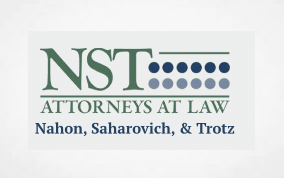There may be no area of the law where it is more important to have legal counsel than in the United States cannabis industry. The cannabis industry has developed within the context of conflicting and evolving federal and state laws, and businesses in the industry must navigate a wide array of legal challenges. These challenges extend to those businesses that provide services or otherwise interact with cannabis companies. All of this means that people dealing with cannabis issues tend to have lots of questions. And while lawyers may not be the answer to all of the world’s problems, they sure are important to addressing the complex web of laws governing the cannabis industry. As a most basic and relevant example: What is a citizen of Georgia to do if she seeks legal counsel to avail herself of Georgia’s medical cannabis law when federal law appears directly to the contrary, even though the federal government has made it clear that it will not enforce its prohibition except under rare and specified circumstances?
When faced with that question in June 2021, the Supreme Court of Georgia denied a change to the Georgia Rules of Professional Conduct proposed by the State Bar of Georgia and held that Georgia lawyers were prohibited “from counseling and assisting clients” in Georgia’s newly-legal medical cannabis industry.
It may have been the right answer to a wrong question posed by the State Bar of Georgia, but the result leads to a confounding result for Georgia’s lawyers and its citizens seeking access to medication made legal by its Legislature and Governor. Georgia lawyers find themselves walking that find, as the great Georgia singer-songwriter put so poignantly more than thirty years ago (wow): “Oh no, I’ve said too much; I haven’t said enough.
Federal Law and Enforcement Policy
The federal Controlled Substances Act (“CSA”) establishes five categories or classifications (“Schedules”) of regulated drugs, based on the drugs’ potential for abuse, their accepted medical use, and their treatment in international treaties. Marijuana is listed as a Schedule I Narcotic – the most dangerous category of narcotics under federal law. Manufacturing, distributing, or dispensing marijuana is a violation of the CSA, as is conspiring with another to do so. The CSA also makes it a crime to either (1) “knowingly open, lease, rent, use or maintain any place, whether permanently or temporarily, for the purpose of manufacturing, distributing, or using any controlled substance” or (2) “manage or control any place, whether permanently or temporarily, either as an owner, lessee, agent, employee, occupant, or mortgagee, and knowingly and intentionally rent, lease, profit from or make available for use, with or without compensation, the place for the purpose of unlawfully manufacturing, storing, distributing, or using a controlled substance.” Aiding or abetting another to violate the CSA is itself a crime, as is knowingly assisting a violator after-the-fact.
Violations of the CSA can result in fines and imprisonment, and anyone who conspires to commit an offense under the CSA is subject to the same penalties prescribed for the offense itself. The fines range from $1,000 to $2,000,000, and prison sentences range from less than a year in jail to ten years in jail. In addition to traditional and civil penalties, the government can seize any real property “which is used, or intended to be used, in any manner or part, to commit, or to facilitate the commission of, a violation of” the CSA.
Despite this clear prohibition at the federal level, approximately forty (40) states have permitted the manufacture, distribution, or sale of marijuana to some extent. This open split between federal and state law has raised questions about which law controls the manufacture, distribution, or sale of marijuana in states where those acts are permitted by state law. As a general matter, federal law trumps conflicting state law. Specifically, the Supreme Court has upheld the federal government’s authority to criminalize marijuana notwithstanding contrary state law.
Georgia’s Medical Cannabis Law
The Georgia Access to Medical Cannabis Commission describes the Georgia law as “much more limited than some other states.” The statute does little more than allow registered people to buy and possess low-THC oil from licensed dispensaries. This oil can contain CBD and up to 5% THC by weight.
Only a select number of licensed producers can grow the cannabis that will eventually be turned into the allowed low-THC oil. As in many other states, the application and licensing process is quite strict.
In order to obtain a registration card, prospective patients must have a qualifying condition or disease and be registered through their physician. Once a patient has their card, they can buy low-THC oil and possess 20 fluid ounces or less so long as they keep it in the manufacturer-labeled pharmaceutical packaging.
The Proposed Amendment to the Georgia Rules of Professional Conduct
In response to the new low-THC oil law and a request for an advisory opinion submitted by a Georgia attorney in September 2019, the State Bar proposed amending the Georgia Rules of Professional Conduct. The Office of the General Counsel for the Georgia State Bar described the proposed amendment as one:
to add a new subpart (e), which would have allowed Georgia lawyers to counsel clients regarding conduct that is lawful under Georgia law but that may violate the law of another jurisdiction. The motion to amend was made in the context of the Georgia law allowing cannabis production even though cannabis is a Schedule 1 drug that is illegal under the federal Controlled Substances Act.
The Response of the Georgia Supreme Court
The Court recognized the desire of certain Georgia lawyers to participate in the state’s new medical cannabis industry. The Court noted at the outset, however, that the proposed amendment “is not limited to conduct related to low-THC oil; indeed, the proposed amendment is quite broad and might well apply to a wide range of conduct constituting a crime under federal law that simply has no corollary state criminal sanctions.” That point may have been the death knell, as the Court concluded:
But this Court has long prohibited Georgia lawyers from counseling and assisting clients in the commission of criminal acts. The passage of a Georgia statute purporting to permit and regulate conduct that constitutes federal crimes does not change that long-standing principle.
The Aftermath of the Decision
The Court’s strident refusal to allow an amendment of the Rules of Professional Conduct sent shock waves through the cannabis bar. After all, nearly every state bar when faced with a similar question has permitted at least some role for lawyers to advise and/or assist clients engaged in state-legal marijuana acts.
Is there a federal constitutional right for a lawyer to advise and assist clients engaged in state-legal activity? While that’s a worthwhile debate, we are not aware of any court of last resort reaching that conclusion. In fact, the firmly accepted crime-fraud exception to the attorney-client privilege strongly suggests that such a rule does not currently exist. And we believe the Georgia Supreme Court is the venue most likely to break new ground on that issue.
Perhaps the answer lies in a close reading of the Georgia Supreme Court’s opinion. On the one hand, one can interpret it as a wholesale prohibition of Georgia lawyers advising and assisting clients from engaging in any act which violates federal law. On the other hand, however, that does not explain the Court’s focus on the overbreadth of the proposed amendment (specifically, that the amendment “might well apply to a wide range of conduct constituting a crime under federal law”). Perhaps if the proposed amendment was limited to allowing lawyers to advise and assist clients engaged in medical marijuana activities expressly permitted by Georgia law, the Georgia Supreme Court would have less concern about the broader implications of its ruling and may allow for such an amendment.
In our view, there is something perverse about prohibiting creating a state regulatory framework and then prohibiting citizens from obtaining legal counsel to defend their rights and interests within that very framework. Going back to the top of this post, this is an area of the law crying out for more, not less, competent legal counsel.
* * *
The Georgia State Bar owes it to its members to help make this right, and the Georgia Supreme Court owes it to its constituents to access legal counsel regarding a product that the Georgia Legislature and Governor have made legal. In his famous “Give Me Liberty or Give Me Death” speech, Patrick Henry advised:
[I]n proportion to the magnitude of the subject ought to be the freedom of the debate. It is only in this way that we can hope to arrive at truth, and fulfill the great responsibility which we hold to…our country.
Source: https://www.buddingtrendsblog.com/2023/03/the-georgia-supreme-court-should-reconsider-allowing-lawyers-to-represent-clients-following-georgia-law/



































